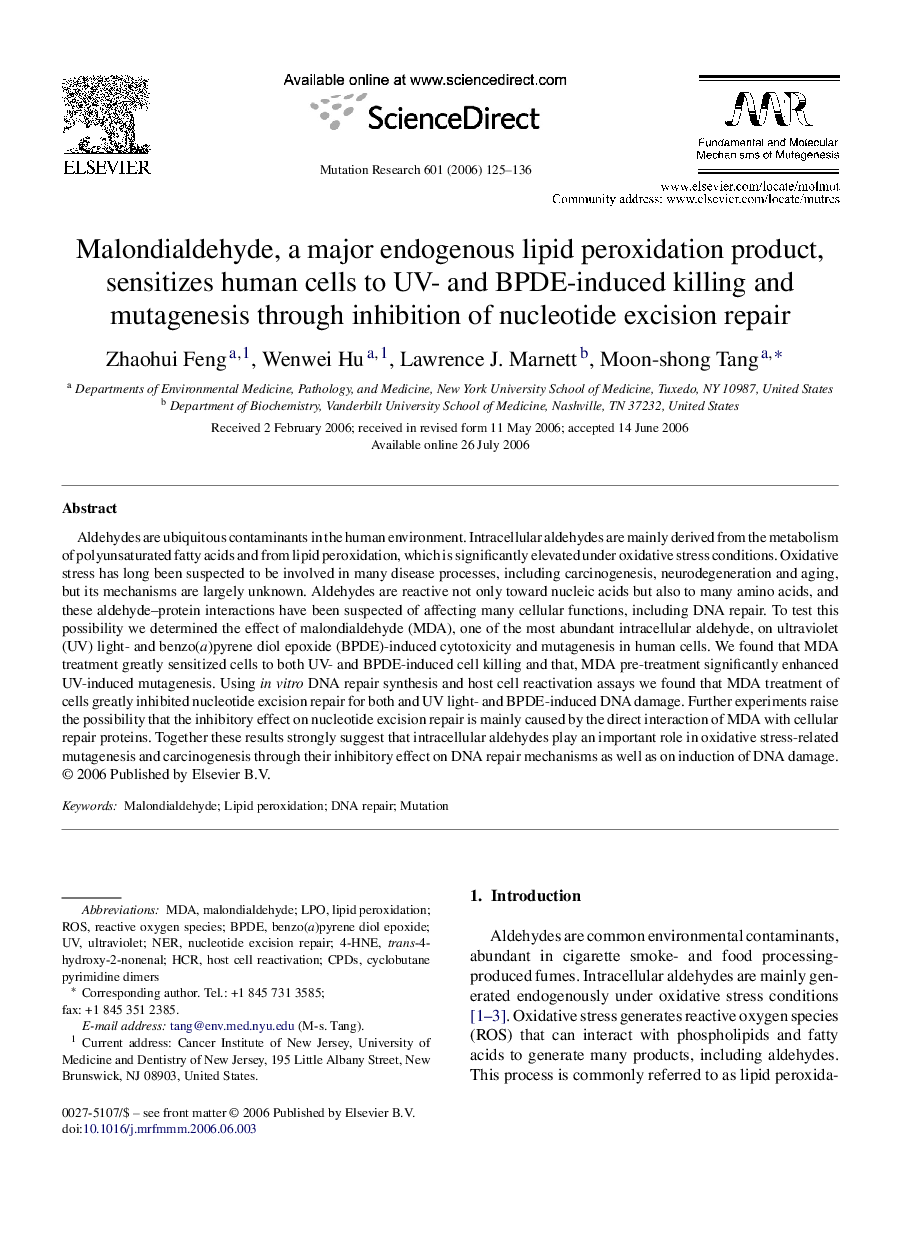| کد مقاله | کد نشریه | سال انتشار | مقاله انگلیسی | نسخه تمام متن |
|---|---|---|---|---|
| 2147570 | 1548417 | 2006 | 12 صفحه PDF | دانلود رایگان |

Aldehydes are ubiquitous contaminants in the human environment. Intracellular aldehydes are mainly derived from the metabolism of polyunsaturated fatty acids and from lipid peroxidation, which is significantly elevated under oxidative stress conditions. Oxidative stress has long been suspected to be involved in many disease processes, including carcinogenesis, neurodegeneration and aging, but its mechanisms are largely unknown. Aldehydes are reactive not only toward nucleic acids but also to many amino acids, and these aldehyde–protein interactions have been suspected of affecting many cellular functions, including DNA repair. To test this possibility we determined the effect of malondialdehyde (MDA), one of the most abundant intracellular aldehyde, on ultraviolet (UV) light- and benzo(a)pyrene diol epoxide (BPDE)-induced cytotoxicity and mutagenesis in human cells. We found that MDA treatment greatly sensitized cells to both UV- and BPDE-induced cell killing and that, MDA pre-treatment significantly enhanced UV-induced mutagenesis. Using in vitro DNA repair synthesis and host cell reactivation assays we found that MDA treatment of cells greatly inhibited nucleotide excision repair for both and UV light- and BPDE-induced DNA damage. Further experiments raise the possibility that the inhibitory effect on nucleotide excision repair is mainly caused by the direct interaction of MDA with cellular repair proteins. Together these results strongly suggest that intracellular aldehydes play an important role in oxidative stress-related mutagenesis and carcinogenesis through their inhibitory effect on DNA repair mechanisms as well as on induction of DNA damage.
Journal: Mutation Research/Fundamental and Molecular Mechanisms of Mutagenesis - Volume 601, Issues 1–2, 10 October 2006, Pages 125–136